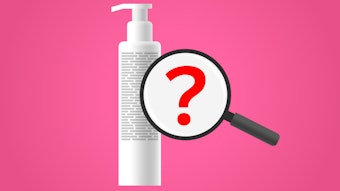The US Federal Trade Commission (FTC) is seeking public comments on its proposed revisions for the "Green Guides," which are designed to help marketers avoid making misleading product claims. The new revisions are reportedly easier to understand and use. Revisions to the guides include guidance for claims on renewable energy; product claims such as "green," "eco-friendly," and "free-from;" and seals of approval. Since marketing often impacts product formulation, it is important for formulators to understand the proposed changes as well as provide their input.
“In recent years, businesses have increasingly used 'green' marketing to capture consumers’ attention and move Americans toward a more environmentally friendly future," said FTC chairman Jon Leibowitz in a commission press release. "But what companies think [these] claims mean and what consumers really understand are sometimes two different things. The proposed updates . . . will help businesses better align their product claims with consumer expectations.”
The revised guides caution marketers not to make blanket, general claims that a product is environmentally friendly or eco-friendly based on findings from the FTC’s consumer perception study confirming that such claims suggest the product has specific and far-reaching environmental benefits. According to the group, very few products, if any, have all the attributes consumers seem to perceive from such claims, making these claims nearly impossible to substantiate.
The proposed guides also caution marketers not to use unqualified certifications or seals of approval, i.e., those that do not specify the basis for the certification; qualifications to certifications or seals should be clear, prominent and specific.
In addition, the revised guides advise marketers how consumers are likely to understand certain environmental claims, including that a product is degradable, compostable, or "free-from" a particular substance. For example, if a marketer claims that a product thrown in the trash is degradable, it should decompose in a reasonably short period of time, i.e., in no more than one year.
Finally, the proposed guides advise marketers to not make unqualified renewable energy claims if the power used to manufacture any part of the product was derived from fossil fuels. In addition, new advice about carbon offset claims is provided; if the emission reductions by a consumer’s purchase will not be realized within two years, or if the activity that produces the offset is already required by law, it is recommended the marketer avoid advertising such offsets.
The proposed guides do not address use of the terms sustainable, natural and organic. Organic claims made for textiles and other products derived from agricultural products are currently covered by the US Department of Agriculture’s National Organic Program.
As noted, the FTC is seeking comments on all aspects of its proposal until Dec. 10, 2010, after which it will decide which changes to make final. Parties interested can submit comments in paper form by following the instructions in the “Request for Comment” section of the Federal Register notice. Comments can also be submitted electronically at https://ftcpublic.commentworks.com/ftc/revisedgreenguides.










